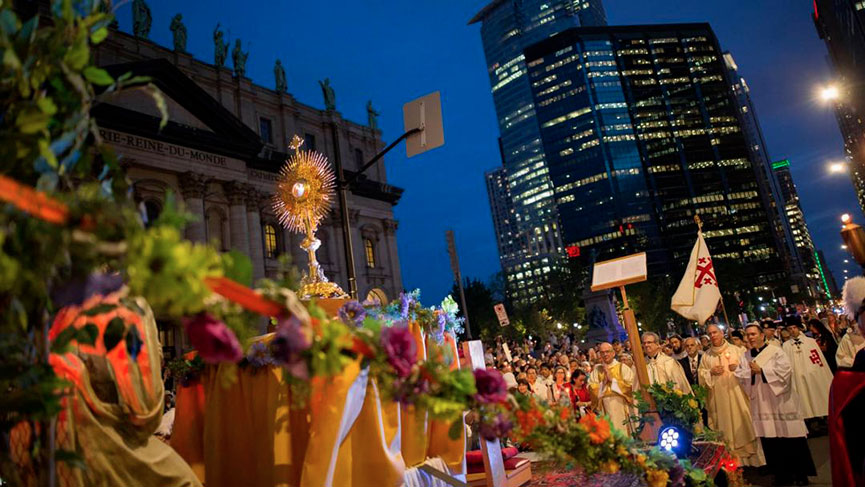Opinion Letter - Archbishop Christian Lépine of Montreal: Public Prayer – “What if we were to ban… thinking?”

Montreal
August 29, 2025
Prayer, in its simplest form, is an inner movement of the heart. It is a thought turned toward God who is goodness, a way of being present to the world, a search for peace. Recent proposals to prohibit public prayer raise serious concerns about respect for fundamental freedoms in a democratic society.
A recognized freedom
The freedom to manifest one’s faith—individually or in community, privately or publicly—is affirmed by the Universal Declaration of Human Rights (1948, art. 18), the Quebec Charter of Human Rights and Freedoms (1976, art. 3), and the Canadian Charter of Rights and Freedoms (1982, art. 2a). These texts affirm that religious freedom is not confined to places of worship: it is an integral part of life together. To restrict prayer to the private sphere would be to narrow the space of freedom for society as a whole.
An unworkable and discriminatory proposal
How does one distinguish prayer from a moment of silence or reflection? How can legislation govern an intention, a whisper, an inner thought? And above all, who would decide what counts as prayer and what does not? Any such ban would inevitably be arbitrary, fostering suspicion and prejudice.
It would also jeopardize traditions deeply rooted in Quebec: the March of Forgiveness, the Feast of Corpus Christi, the Way of the Cross, Palm Sunday processions, and the March for Peace. These events, marked by order and dignity, are spaces of encounter and dialogue. To forbid prayer in public would be to threaten their very existence.
One need only recall Pope Francis’ 2022 visit—an event of worldwide significance. Could it have taken place under such a ban? And yet that visit unfolded peacefully and respectfully.
It is the State that is secular, not society
The secular nature of the State ensures that institutions remain neutral in the face of diverse beliefs, serving all members of society. But this does not require faith to disappear from public life. On the contrary, confusing State neutrality with the neutralization of society would represent a serious step backwards.
In a democratic society such as ours, diversity of conviction is not to be feared but welcomed. It enriches Quebec, which is strengthened by a culture of dialogue and encounter.
Prayer is a breath of peace
Whether private or public, prayer offers comfort, eases tensions, recalls the dignity of each person, and inspires justice and peace.
“For where two or three are gathered in my name, I am there among them.” — Mt 18:20
In a world shaken by economic, social, and environmental crises, can we afford to discourage gestures that foster hope and solidarity? At its core, to forbid public prayer would be somewhat like forbidding thought itself.
✠ Christian Lépine
Archbishop of Montreal
PDF version of the Archbishop of Montreal's pastoral letter

Comment
Comment
Add new comment